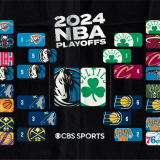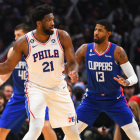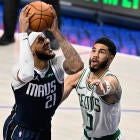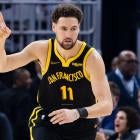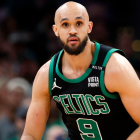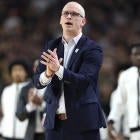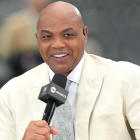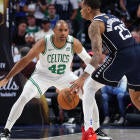George Karl is badmouthing people again. In an interview with New York magazine's David Marchese, Karl elaborated on what he didn't like about Carmelo Anthony when they were with the Denver Nuggets, throwing in a shot at Portland Trail Blazers star Damian Lillard for good measure.
I'm sure you saw how people already picked up on your calling Carmelo Anthony a "user." What's an example of Carmelo's being a "user"?
I think what I have to say about that is in the book. But here's what I'll say now: Melo is a hell of a player, the best offensive player I've ever coached. I owe him as much as anyone for my having a great record. But there's a new generation of players interested in personal branding and gaining money and power off the court, and that's all new to me. There were too many times with Melo when what was going on off the court was more important than what was happening on the court. It bothered me then and it bothers me now. That kind of thing bothered me just the other night.
What happened?
I was watching the Portland Trailblazers play, and I was trying to figure out, What the hell is wrong with this team? My conclusion is that Damian Lillard is getting too much attention.
What makes you think that?
Who controls the team? The coach and the point guard. And that team is not working. I think their coach, Terry Stotts, is a great coach. So I'm going to say the problem is Lillard. They were a together, connected, committed team last year. This year they're not. What changed?
Lillard's agent, Aaron Goodwin, responded by saying Karl "sounds like an idiot."
Damian Lillard's agent, Aaron Goodwin, to ESPN on George Karl's criticisms of his client. pic.twitter.com/7Lg9CPaTGA
— Chris Haynes (@ChrisBHaynes) December 28, 2016
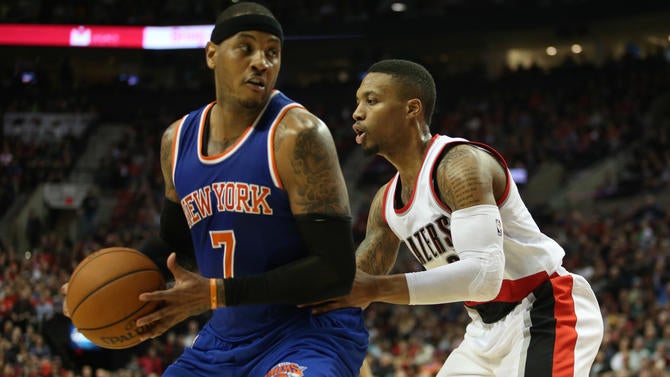
A few thoughts:
- Your opinion on what Karl's saying here likely depends on whether or not you resent NBA players for making lots of money and using their star power to become businessmen and pursue off-court interests. I'd argue, as Marchese did in a subsequent question, that it's smart for players to take advantage of whatever opportunities present themselves during their relatively short careers. Karl deflected that question by saying the league needs to do a better job of helping players manage their finances, refusing to engage with the idea that the players could be acting rationally by, as he put it, "gaining money and power off the court."
- Karl is creating a false distinction between focusing on basketball and other interests. Why can't Anthony and Lillard do multiple things with their time? No one would dare argue that LeBron James' numerous off-the-court projects have gotten in the way of his basketball career. Kobe Bryant is known for being as maniacally competitive and basketball-obsessed as they come, and he was personally involved in everything that had his name on it, endorsement-wise. It's unfair and unrealistic to expect everybody to be Tim Duncan.
- Basketball-wise, Karl's specific criticisms of Anthony in his book mostly ring true. He was frustrated with Anthony's lack of commitment to defense, and he's surely not the only coach who has felt this way. The most charitable interpretation for this, then, is that he simply thought Anthony didn't have his priorities straight as a young player -- why put all this time into this other stuff when you need to be working on the weak parts of your game? Still, it feels like a cheap shot, and it absolves Karl's coaching staff of its responsibility to help Anthony develop into a well-rounded player.
- Even more than the Anthony criticism, the jab at Lillard comes off as bitter. Lillard is an All-Star who has been lauded for his work ethic since he came into the league. He has improved every season. Like Anthony, he's not perfect -- it would sure help the Blazers if he was a better defender -- but he doesn't deserve to be singled out as the reason that his team is struggling. In "Furious George," Karl laments that members of media continually referred to J.R. Smith as his "whipping boy" in Denver, calling it a sign of the "fundamental lack of awareness so common in beat reporters." Here, he is turning Lillard into a scapegoat, but providing no evidence of what Lillard has done wrong. This could be described as a fundamental lack of awareness on Karl's part.











